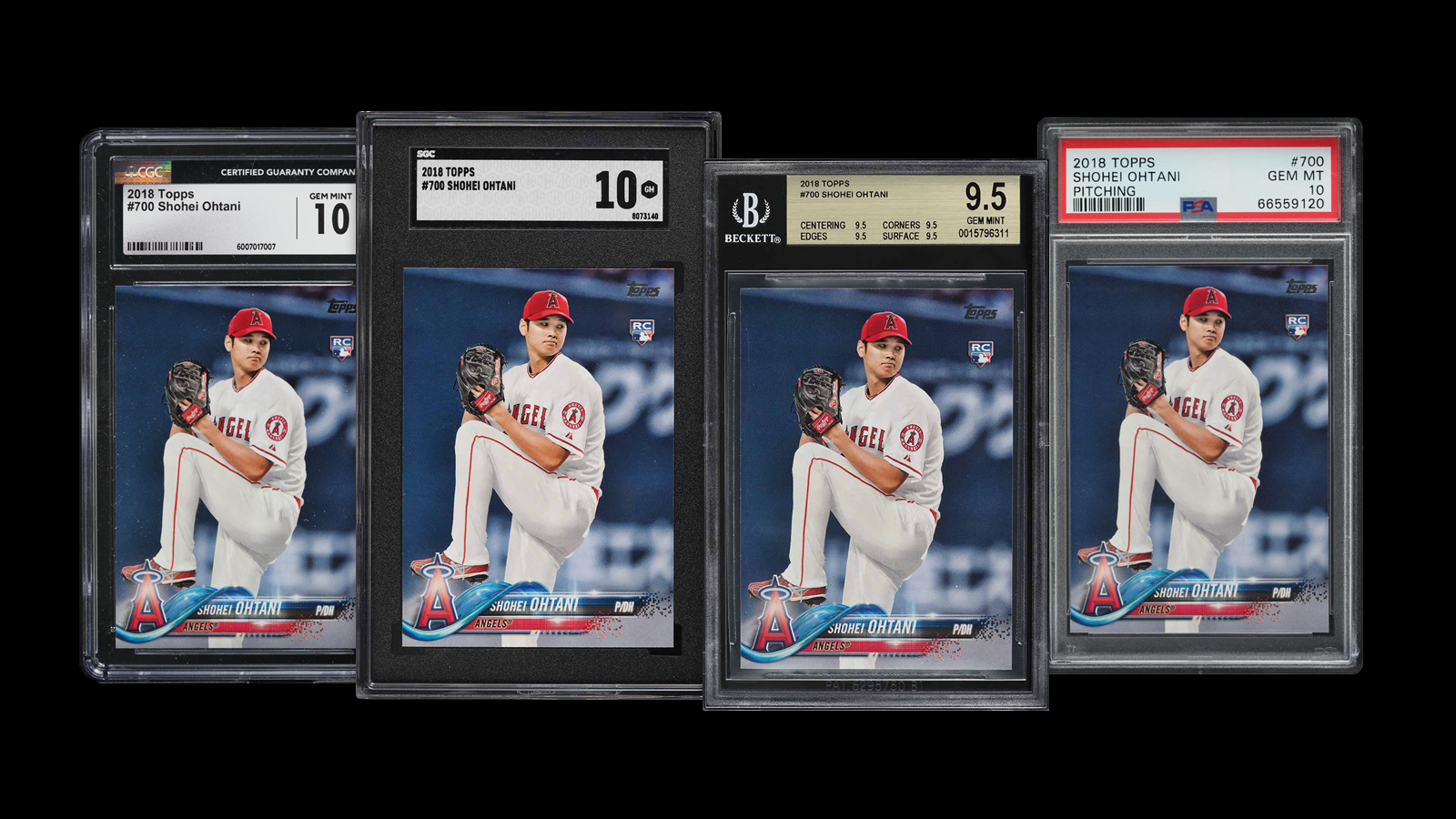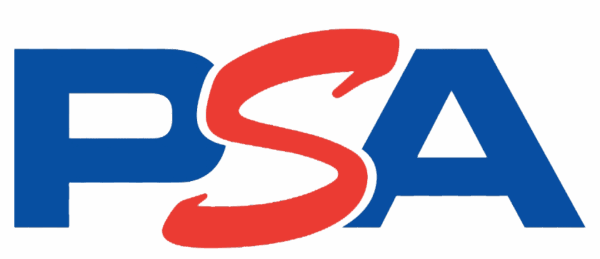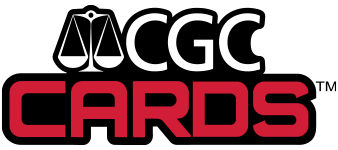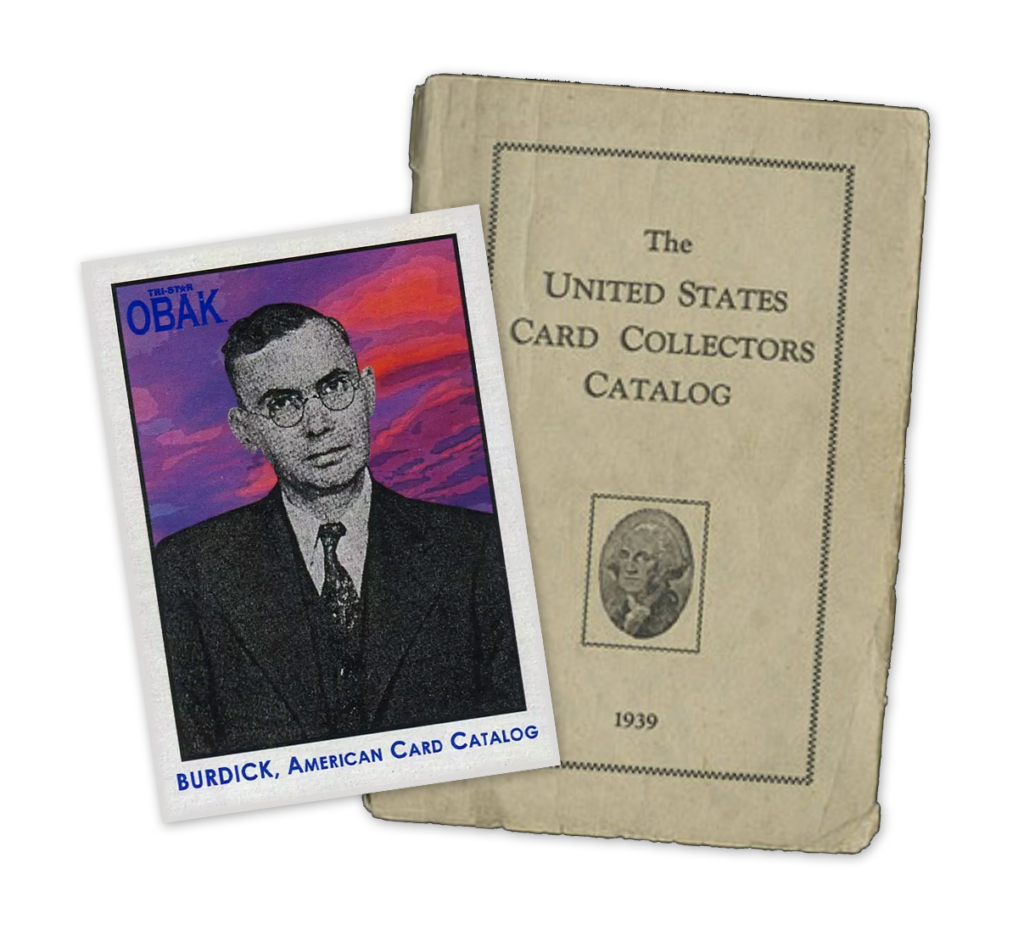Card grading has become a cornerstone of the trading card industry, offering collectors standardized evaluations that enhance trust and transparency in transactions. However, opinions on which grading companies are best often vary, and these assessments can sometimes lack a complete understanding of all the factors at play.
With this in mind, we will examine the top four card grading companies — PSA, SGC, BGS, and CGC — by evaluating their expertise, industry experience, unique features such as grading scales, holder attributes, current market positions, and pricing structures for grading services. This analysis will reveal which company grades the highest volume of cards, which have the best security features, which are gaining momentum, and which may be facing challenges.
The companies are ranked below based on their years of experience in grading trading cards.
NOTE: information has been updated as of December 15, 2025. Latest updates to this story are highlighted in bold.
Image source: Fanatics Collect
PSA – Professional Sports Authenticator
In business since: 1991
Cards graded in 2024: 15,340,000 / 1st rank (source: GemRate)
“Value” pricing / turnaround time: $27.99 per card / 75 business days (estimated)
Grading scale, Mint 9 and up: Mint 9, Gem Mint 10
Holder:
PSA holders are made from clear, tamper-evident plastic and feature a label with a red trim. This label displays the card’s grade, description, a unique certification number and a bar code. Modern PSA holders are constructed from durable, medical-grade plastic that is resistant to scratches, UV light, and environmental factors such as heat and humidity. Over the years, PSA has implemented numerous updates, incorporating holograms and other security features to enhance authenticity.
Pros:
PSA is the clear industry leader in terms of cards graded and resale value achieved in the secondary market. One of its standout features is the PSA Set Registry, which allows collectors to organize, track, and showcase their collections. PSA also provides collectors with excellent technology tools through its app, offering convenience and functionality. Another significant benefit is the PSA Guarantee. In short, PSA stands behind its authentication and grading standards. If an error is confirmed under their terms, PSA will compensate you by either buying the card or refunding the value difference. It’s a financial backstop on their grading work, not a promise of a specific grade outcome. Here are the full details from the PSA website. Additionally, over its three decades in business, PSA has maintained a clean and consistent design for its holders and labels. This gives them a distinctive and professional appearance that collectors widely recognize and appreciate.
Cons:
One drawback for customers is the possibility of being charged up-charges if the estimated market value of a graded card exceeds certain thresholds after grading. This can lead to unexpected costs and may deter some collectors. Another limitation is the absence of a Mint+ (9.5) grade in the grading scale, which could provide a finer distinction between high-grade cards. Additionally, the lack of a Pristine grade further reduces the ability to differentiate between top-tier cards. Collectors have also noted that the font size of the numerical grade on the label is relatively small, making it difficult to read from a distance and less practical for display purposes. Furthermore, many collectors are not in favor of the use of qualifiers, such as “OC” (Off-Center) or “MK” (Marked), which can complicate valuation and pricing, as they introduce additional layers of subjectivity into the process (learn more about PSA qualifiers here).
Market:
PSA has firmly established itself as the market leader across nearly all categories, including modern and vintage cards, in sports, non-sport and trading card games (TCGs). PSA-graded cards consistently command the highest resale values in comparable grades, further reinforcing the company’s dominant position in the industry. The term ‘PSA 10’ has become synonymous with a Gem Mint card, much like ‘Scotch Tape’ is synonymous with transparent adhesive tape. This reputation for excellence has made PSA the preferred choice for collectors seeking both credibility and maximum value from their graded cards.
Latest news:
Collectors, PSA’s parent company, has acquired Beckett Media & Collectibles, including Beckett Grading Services (BGS). For complete coverage of this developing story, see the full feature on Sports Collectors Daily. Collectors previously acquired SGC in February 2024. Since that acquisition, SGC has experienced a steady decline in both resources and grading volume. See more below.
SGC – Sportscard Guaranty Company
In business since: 1998
Cards graded in 2024: 2,320,000 / 2nd (source: GemRate)
“Standard” pricing / turnaround time: $15 per card / 15-20 business days (estimated)
Grading scale, Mint 9 and up: Mint 9, Mint+ 9.5, Gem Mint 10, Pristine 10
Holder:
SGC holders are renowned for their distinctive and sophisticated appearance. Often referred to as ‘The Tuxedo,’ the holder features a bold black insert that creates a striking contrast, elevating the card’s visual appeal. The label at the top displays the card’s grade, description, and unique certification number in a sleek, modern font. Collectors frequently appreciate the minimalist elegance of SGC slabs, which have established a unique identity within the grading industry. A particularly appealing feature is the gold trim on the label used for Pristine 10 cards, adding an extra touch of prestige.
Pros:
SGC is known for its firm and consistent grading standards, earning a strong reputation for reliability among collectors. The company is widely recognized for its exceptional customer service, setting a high benchmark for responsiveness and support within the industry. While SGC is particularly respected in the vintage card market, it has been steadily gaining traction and trust in the modern card segment. Many of the hobby’s most valuable cards are encapsulated in SGC holders, further enhancing its credibility. Known for delivering the fastest turnaround times in the industry, SGC remains a top choice for collectors who prioritize efficiency and quality. Additionally, SGC distinguished itself as the first grading company to provide digital imaging with every card graded, offering an added layer of customer service and security.
Cons:
The black ‘tuxedo’ holder used by SGC is a distinctive feature that evokes mixed reactions among collectors. While some appreciate its sleek and elegant design, others find it less appealing compared to the more conventional styles offered by competitors. Although the holder has gained recognition for its unique aesthetic, it lacks some of the advanced security and technology features provided by other grading companies.
Market:
SGC has long enjoyed strong acceptance in the secondary market for vintage cards, solidifying its reputation among collectors who value consistency and reliability in grading. Over the past four to five years, the company has made significant strides in the modern card segment, steadily increasing its market share and expanding its influence across the broader trading card industry.
Latest news:
In February 2024, SGC was acquired by Collectors, Inc., the parent company of PSA, marking a pivotal moment in its history. Despite this acquisition, SGC has maintained its independence, continuing to operate under its existing management team while leveraging the expertise and resources offered by Collectors, Inc.
In late July 2025, PSA president Ryan Hoge made a significant announcement regarding the future direction of SGC, revealing that the company is strategically repositioning the grading service as a specialized “boutique” brand. This decision appears to be a deliberate shift toward scaling down SGC’s operations, focusing on creating a more exclusive and premium grading experience rather than competing in the high-volume market segment.

BGS – Beckett Grading Services
In business since: 1999
Cards graded in 2024: 657,000 / 4th (source: GemRate)
“Base” pricing / turnaround time: $17.95 per card (w/ subgrades) / 45+ business days (estimated)
Grading scale, Mint 9 and up: Mint 9, Gem Mint 9.5, Pristine, Pristine+ (Black Label)
Holder:
The BGS holder is designed with a distinct labeling system that reflects the card’s grade. Silver foil labels are used for cards graded between 1 and 9, while gold foil labels are reserved for cards graded 9.5 or 10, signifying higher quality. The most prestigious distinction is the black label, awarded exclusively to cards that achieve the Pristine+ grade, symbolizing flawless condition and rarity. One of BGS’s standout features is the inclusion of subgrades, which provide a detailed breakdown of the card’s condition in key areas such as centering, corners, edges, and surface. This added layer of transparency gives collectors deeper insights into how the overall grade was determined. The holder itself is well-regarded for its solid, ‘chunky’ design, which offers a sense of durability and quality. Additionally, each card is encapsulated in a sealed protective sleeve within the holder, providing extra defense against environmental damage and wear, further ensuring the card’s preservation.
Pros:
BGS enjoys strong brand recognition and a respected legacy rooted in the contributions of Dr. James Beckett, a pioneering figure in the hobby whose influence remains significant. The durability and innovative features of BGS holders are a major advantage, setting a high standard for card protection and presentation. Among its most distinguished offerings is the coveted Pristine+ Black Label, widely regarded as the finest and most sought-after grade in the industry. This exclusive grade symbolizes perfection, significantly enhancing the value and prestige of the cards that earn it. Additionally, BGS made history as the first grading company to introduce autograph card grading.
Cons:
BGS has faced some challenges, but these also present opportunities for growth. One noted drawback is the absence of a Mint+ (9.5) grade, which could provide more precision for high-grade cards. While subgrades offer detailed insights, some collectors find them overly complex, leading to variability in secondary-market values between ‘strong’ and ‘soft’ subgrades. Additionally, BGS has struggled to establish a strong presence in the vintage card market, partly due to concerns about certifying cards believed to be cut from uncut sheets. Recent grading scale changes, later rescinded following collector feedback, highlight BGS’s willingness to adapt. Despite these challenges, the company remains a respected name in the hobby with room to strengthen its position further.
Market:
From 2000 to 2016, BGS was widely regarded as the market leader in grading modern cards, earning this position through its advancements in services and its commitment to transparency. As mentioned above, the company introduced many innovative features, which resonated with collectors and set new industry standards. Its consistent grading practices and trusted reputation made it a go-to choice for modern cards during this period. However, recent marketing, customer service and PR blunders, along with ownership scandals, have raised concerns within the hobby, temporarily overshadowing its legacy and prompting questions about the company’s direction moving forward. Despite these challenges, BGS remains a respected name in the grading industry, with the potential to rebuild and solidify its standing among collectors.
Latest news:
Collectors, PSA’s parent company, has acquired Beckett Media & Collectibles, including Beckett Grading Services (BGS). For complete coverage of this breaking news, see the full story at Sports Collectors Daily.
CGC – Certified Guaranty Company
In business since: 2021
Cards graded in 2024: 1,870,000 / 3rd (source: GemRate)
“Economy” pricing / turnaround time: $17 per card ($18 in 2026) / 30 business days (estimated)
Grading scale, Mint 9 and up: Mint 9, Mint+ 9.5, Gem Mint 10, Pristine 10
Holder:
CGC holders are thoughtfully designed to provide protection while ensuring they remain visually appealing for display purposes. The holder offers a sturdy feel, giving collectors confidence in its durability. The label is well designed, using modern compact fonts, featuring a black trim and essential information such as detailed card descriptions, a unique certification number, and a range of security measures like microprinting, UV ink, holographic foil, and a QR code for easy verification. For cards that achieve the CGC Pristine 10 grade, a distinctive gold-foil label is added, highlighting their condition.
Pros:
CGC stands out for its advanced features and strong reputation in the card grading industry. Its CGC Set Registry allows collectors to organize and showcase their collections effectively. The company is notable for grading error and mis-cut cards, which appeals to niche collectors. CGC is backed by its parent company, a leader in comic book and magazine grading. This gives CGC extensive expertise across sports, non-sports, and trading card games. Its head sports grader formerly worked at BGS, bringing additional credibility to the team. CGC holders feature some of the strongest security measures in the industry, ensuring durability and authenticity. Many hobbyists consider them among the most well-constructed and well-designed holders available.
Cons:
CGC has quickly made strides and changes in the sports card market since entering the segment in 2021. Although the company has updated its holder and label designs several times, these changes reflect its efforts to refine and improve the overall presentation. While a recent recall of approximately 1,500 potentially counterfeit Pokémon cards posed a challenge, it also demonstrated CGC’s commitment to addressing issues head-on and maintaining trust within its strongest category — TCGs.
Market:
CGC has built a strong reputation in the secondary market for TCGs, Pokémon cards, and non-sport cards, earning its place as a favored choice among collectors in these categories. While its presence in the sports card secondary market is still growing, there is significant potential for expansion as more collectors choose to grade their sports cards with CGC. This reflects the increasing trust and recognition of CGC’s strengths, including its advanced holder security features, sleek design, and tactile quality. Collectors also value the company’s commitment to providing a detailed, consistent, and transparent grading process.
Latest news:
With PSA’s parent company acquiring Beckett, CGC is now the only major card grading company that remains independent from Collectors.
CONCLUSION:
After examining the top four card grading companies, each brings distinct strengths to the hobby: PSA leads in market dominance and resale values, SGC excels in vintage cards and turnaround speed, BGS offers detailed subgrades and the prestigious Black Label, while CGC has established itself as a powerhouse in TCGs with advanced security features.
Ultimately, the “best” grading company depends on your specific collecting goals — whether you prioritize maximum resale value, fastest service, detailed condition analysis, or expertise in particular card categories. Understanding these differences empowers you to make informed decisions that align with your collecting needs as the hobby continues to evolve.

GRADEx Staff
This story is a team effort. Our writers, editors, and hobby experts worked together, researching and reporting to bring you this piece.









